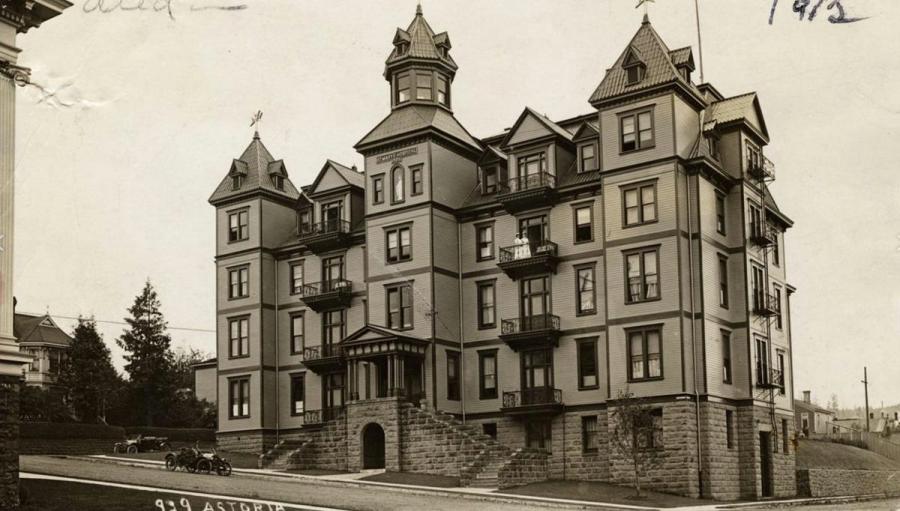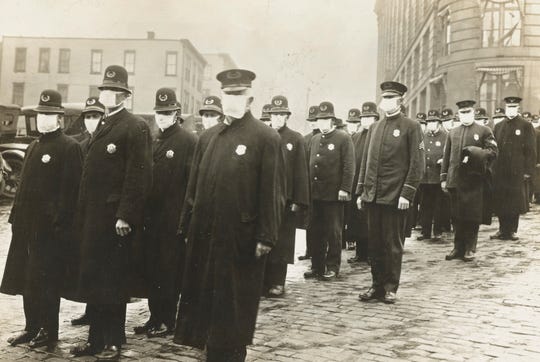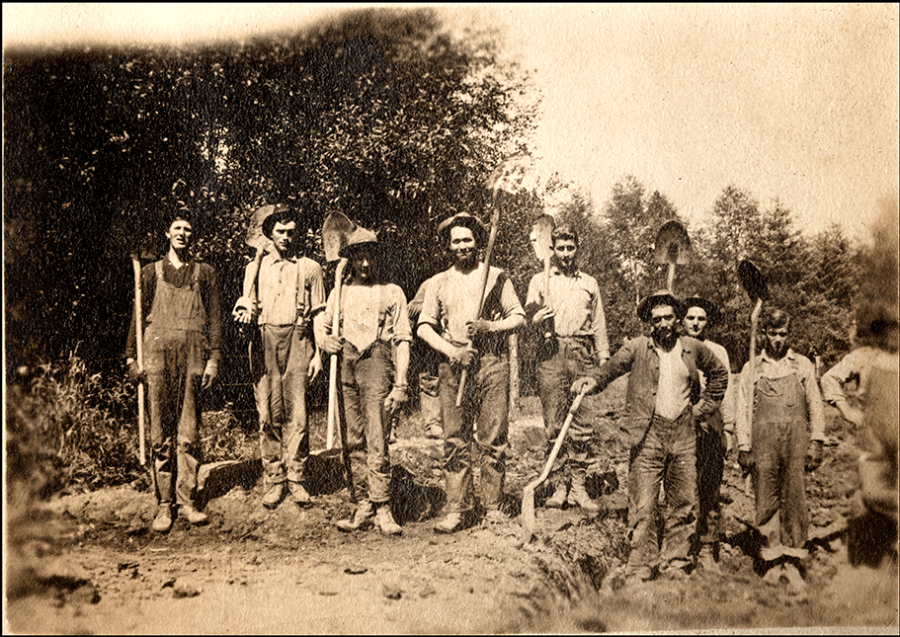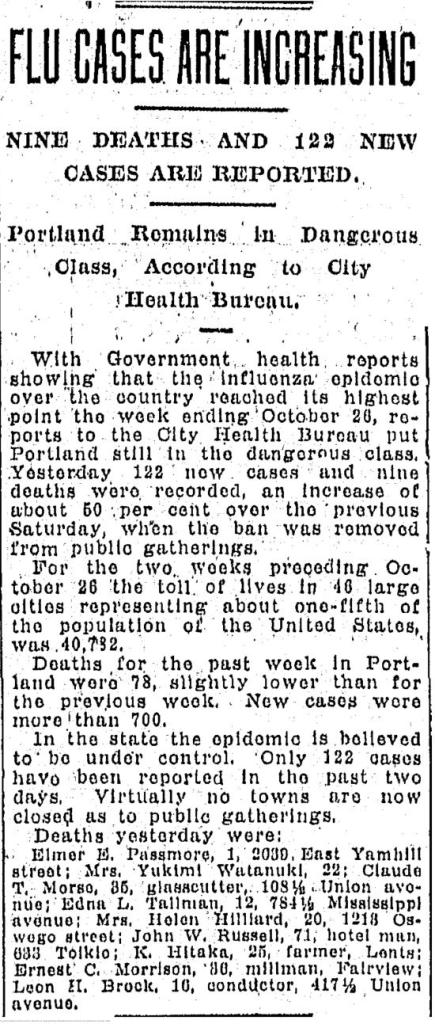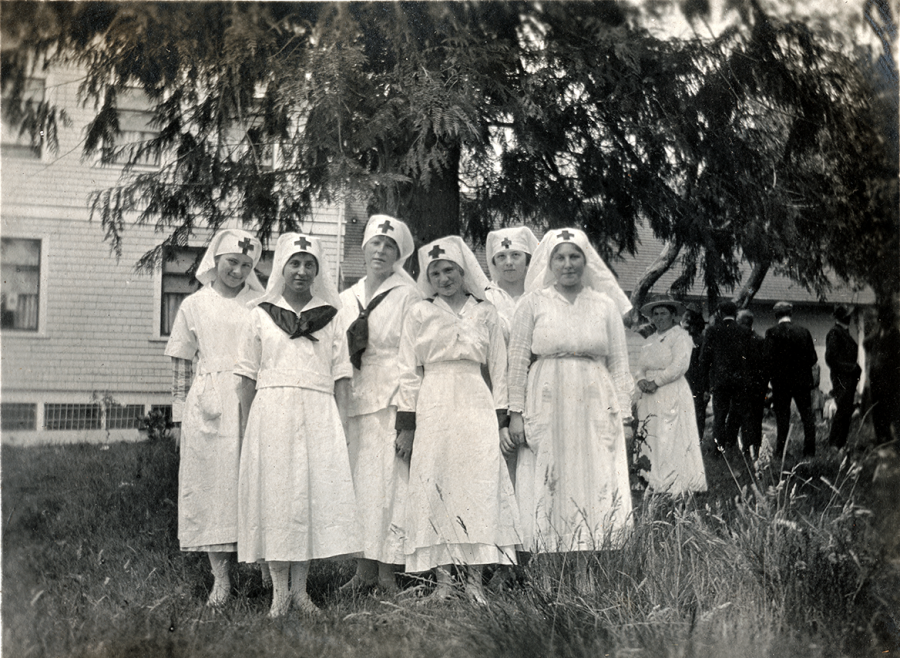PORTLAND, Ore. (KOIN) — Oregon has been through this before. The Spanish flu pandemic of 1918 infected half a billion people worldwide, killed 675,000 Americans, and claimed more than 3,500 Oregonians. During this pandemic, Clatsop County was hit especially hard. The lessons from that time are an important part of where we live.
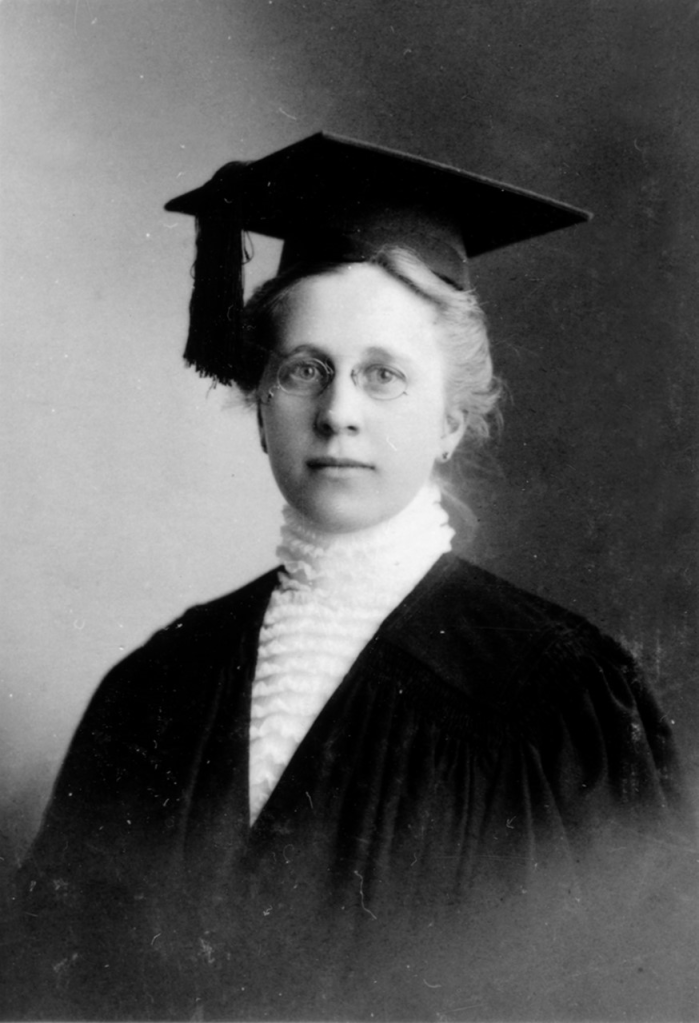
Near the end of World War I, the Spanish flu infected a quarter of the world’s population; an estimated 50 million people died. At first, Astoria was relatively untouched.
“But in September of 1918, about 1,500 troops were moved from Fort Camp Lewis up in Washington to Fort Stevens here in Clatsop County, and almost immediately some of those soldiers were diagnosed with Spanish flu and it started to spread throughout the community,” said McAndrew “Mac” Burns of the Clatsop County Historical Society. “The commanding officer at Forst Stevens did quarantine the fort, but the soldiers were still out in the woods interacting with loggers because they were on what’s called the Spruce Patrol—cutting spruce trees for the war effort, World War I.”
The flu quickly swept through the town of more than 10,000, plus the soldiers. Upwards of 2,000 cases were reported and Saint Mary’s Hospital in Astoria was filled with the sick and dying. Over the objections of many in the business community, Clatsop County Chief Medical Officer Dr. Nellie Smith Vernon shut Astoria down. Warrenton and Seaside quickly followed.
It was social distancing more than 100 years before COVID-19.
“First, she started by closing things like the pool halls, dance places—dance halls—and then, eventually, closed the schools and everything else, and basically told people to shelter in place,” said Burns.
The order lasted a month. 164 people died in Clatsop County. But, townspeople say Dr. Vernon’s aggressive action kept the death toll from rising even higher. Her advice is once again appropriate in modern times.
“Cover up each cough and sneeze,” said Burns. “If you don’t, you’ll spread disease.”
Today, Astoria is a popular tourist destination. But, like the rest of Oregon, the town is shut down—just like it was more than 100 years ago.

